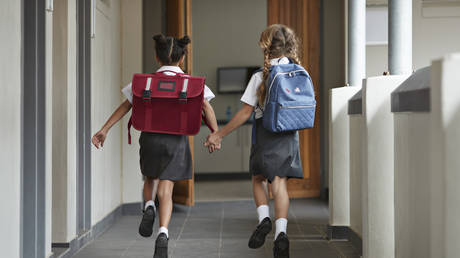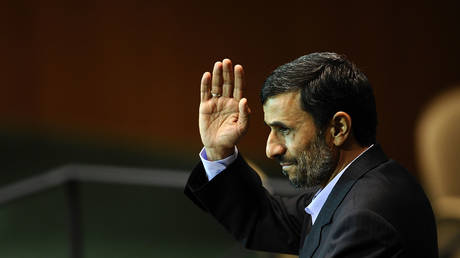
Scottish guidance says don’t tell parents about underage sex
Family advocates are up in arms against a new guideline issued by the Scottish government which they say promotes – or at least condones – underage sex among children as young as 13, local media reported on Sunday.
The policy states that if a young person is in a “safe and mutually respectful” relationship, police, teachers and social workers should maintain “confidentiality” – i.e. no telling Mom and Dad. However, the age of consent in Scotland is 16, meaning that no matter how safe and respectful a child’s relationship may be, it technically could be outside the law.
Family campaigners, the Catholic church and others concerned with increased meddling into families’ personal lives by the state have excoriated the new protocol, with the Family Education Trust declaring the rule “effectively” lowers the age of consent to 13.
The policy is “effectively a charter for underage sex,” the Trust’s Piers Shepherd told the Mail on Sunday, declaring that the “emphasis on confidentiality shows scant respect for parents who are principal legal guardians” and “raises serious health and safety concerns” regarding the child. Parents, he argued, are “best placed to shield children from the harmful effects of underage sexual activity.”
The new policy specifies that cases where the child is clearly at risk – where there is a “power imbalance,” grooming, bribing, coercion, or alcohol and drug use – can be reported to parents. However “If sexual activity is taken place/has taken place within safe and mutually respectful relationship, the confidentiality should generally be maintained.”
It’s not clear how police, teachers, and social workers are supposed to gauge the health of an underage relationship. A government spokesman insisted that the “non-statutory guidance” provided in the 276-page National Guidance for Child Protection in Scotland 2021 “does not conflict in any way” with the 2009 law that affirmed Scotland’s age of consent at 16. Indeed, he claimed, the law makes clear that “society does not encourage sexual intercourse in young people under 16.”
As Shepard of the Family Education Trust pointed out, Scottish children under 16 can’t even get a free bus travel card without a parent to fill out the application. Nor can they vote until that age. Signing up for military service at age 16 requires parental permission, and children who want to change their official gender must wait until age 18.
The new child protection policy is just one of several recent steps by Edinburgh that child advocates worry constitutes an unwholesome compulsion to peer into children’s sex lives. Last month, many parents on both ends of the political spectrum denounced the SNP-led government’s health and well-being census, which among other controversial questions asked 14-year-old respondents about their experience with anal sex. Worse, while the survey reassured students its results would be kept confidential, children were asked to fill in their unique Scottish candidate number, while parents were informed such identifying information would be used to identify a child “in exceptional circumstances.” The government defended its survey, arguing that children who felt uncomfortable about the questions could skip them or opt out of the census entirely.




